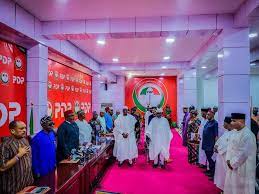
The Nigerian government, in partnership with the Export-Import Bank of China (Exim Bank), aims to collect toll fees totaling N814.08 billion from the Abuja-Lafia-Keffi-Makurdi Highway.
This revenue is intended to repay a $542 million loan obtained for the construction of the road. This toll collection target is based on the official exchange rate of N1,502 to $1 USD.
The financing for the road construction was secured under an EPC+F model, which combines Engineering, Procurement, and Construction (EPC) services with financing solutions such as export loans and credit insurance. This model is being used to fund multiple road projects, although the exact number of projects funded by the Nigeria-China Exim Bank loan was not immediately available at the time of reporting.
The Keffi-Abuja-Makurdi Expressway is among the key projects launched using this financing model. The $542 million project involves the expansion and dualization of the existing carriageway, and it has been highlighted as the flagship project for the toll collection exercise.
Under the arrangement, the China Exim Bank is providing 85 percent of the funding, while the Nigerian government is contributing 15 percent. The Minister of Works, David Umahi, explained during an inspection of the ongoing Kaduna section of the Abuja-Kaduna-Kano expressway that tolling would only be introduced on fully completed roads that fall within the economic corridors.
Umahi emphasized that toll collection would not begin until roads are 100 percent completed, but in cases where roads have been partially completed and are in need of maintenance, an agreement would be reached with stakeholders. “One of the key problems with our roads is lack of maintenance,” Umahi noted. “We need to involve the private sector in this maintenance.”
He also clarified that no road would be tolled until it is fully completed, underscoring the government’s commitment to ensuring roads are in good condition before introducing tolling.
In 2021, the Federal Executive Council approved the reintroduction of toll gates on federal highways, which will be placed on just 5,050 kilometers of dual carriageways, out of the 35,000 kilometers of federal roads in the country. This initiative is part of the Highway Development Management Initiative, aimed at generating revenue for road maintenance and ensuring repayment to investors who have contributed to the construction and completion of the roads.
According to Orji Uchenna Orji, the Special Adviser (Media) to the Minister of Works, the Keffi-Akwanha-Makurdi road project was executed under the EPC+F model, with 85 percent of funding provided by the China Exim Bank, and 15 percent by the Federal Government. Orji confirmed that tolling would be introduced on the road as part of the agreement to repay the loan.
He also indicated that the decision on which roads to toll is an ongoing process, and the government is currently inspecting various projects to determine the next steps. “The issue of tolling is ongoing, and there are several ongoing projects. We are working with the minister on these projects, and I cannot provide specific details until further consultations with the relevant officers,” Orji added.
This tolling plan is seen as a crucial step in securing funding for infrastructure projects and improving the maintenance of Nigeria’s federal roads.





